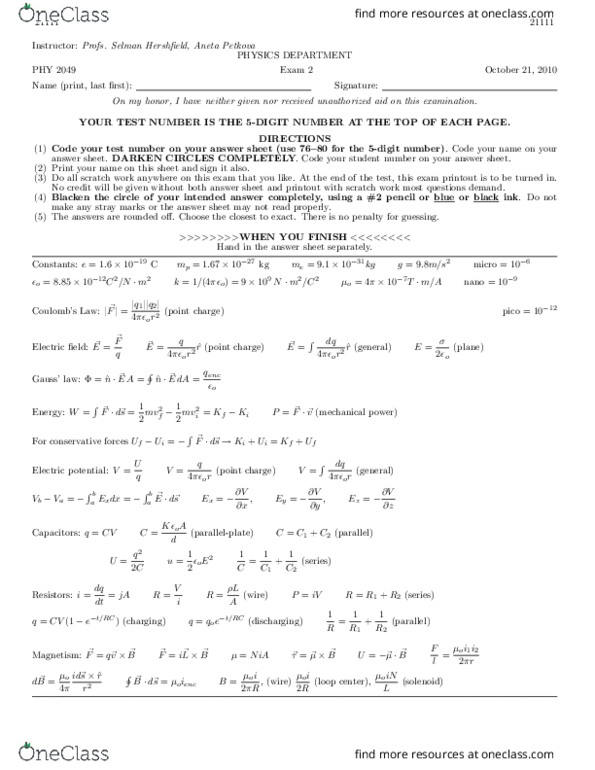

Students complete their study of physics by taking one of the following advanced elective courses:

It is an enforced prerequisite for PHYSICS 390 and the Advanced Courses Requirement. Ideally, PHYSICS 351 is elected no later than the second semester of the sophomore year. PHYSICS 391: Introduction to Modern Physics Lab (must be taken concurrently with PHYSICS 390).PHYSICS 390: Introduction to Modern Physics (must be taken concurrently with PHYSICS 391).PHYSICS 351: Methods of Theoretical Physics I.PHYSICS 340: Waves, Heat, and Light –OR– PHYSICS 360: Honors Physics III.Students must complete all of the following: Once a student has mastered introductory content and declared the major, they prepare for advanced study of the discipline by fulfilling the Intermediate Courses Requirement (four courses), then move on to master advanced concepts, skills, problems, and topics of the discipline by completing the Advanced Courses Requirement (five courses), an Elective Requirement (two courses), and Advanced Elective Requirement (one course). Students are encouraged to officially declare as soon as they make the decision. It is not necessary to complete all courses in the prerequisite sequences in order to declare the physics major. Students who passed one or more AP Physics exams with a score of 5 or higher or who passed the IB HL exam with a 4 or higher are strongly encouraged to elect the honors introductory sequence (PHYSICS 160, 161, 260, and 261). Students who have not already done so should continue their study of mathematics concurrently with their PHYSICS coursework, progressing through differential equations (typically the fourth semester of calculus).

Students who begin the introductory sequence should have completed at least one semester of calculus (MATH 115 or equivalent). PHYSICS 261: Honors Electricity and Magnetism Lab (should be elected concurrently with PHYSICS 260).PHYSICS 251: Physics for the Life Sciences Laboratory II (should be elected concurrently with PHYSICS 250).PHYSICS 241: Elementary Laboratory I (should be elected concurrently with PHYSICS 240).PHYSICS 260: Honors Physics II (should be elected concurrently with PHYSICS 241 or 261).PHYSICS 250: Fundamental Physics for the Life Sciences II (should be elected concurrently with PHYSICS 251).PHYSICS 240: General Physics II (should be elected concurrently with PHYSICS 241).PHYSICS 161: Honors Introductory Mechanics Lab (should be elected concurrently with PHYSICS 160).PHYSICS 151: Physics for the Life Sciences Laboratory I (should be elected concurrently with PHYSICS 150).PHYSICS 141: Elementary Laboratory I (should be taken concurrently with PHYSICS 140).PHYSICS 160: Honors Physics I (should be elected concurrently with PHYSICS 141 or 161).PHYSICS 150: Fundamental Physics for the Life Sciences I (should be elected concurrently with PHYSICS 151).PHYSICS 140: General Physics I (should be taken concurrently with PHYSICS 141).Students prepare for the study of physics by completing the following introductory sequences (four courses total).


 0 kommentar(er)
0 kommentar(er)
